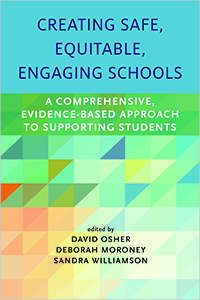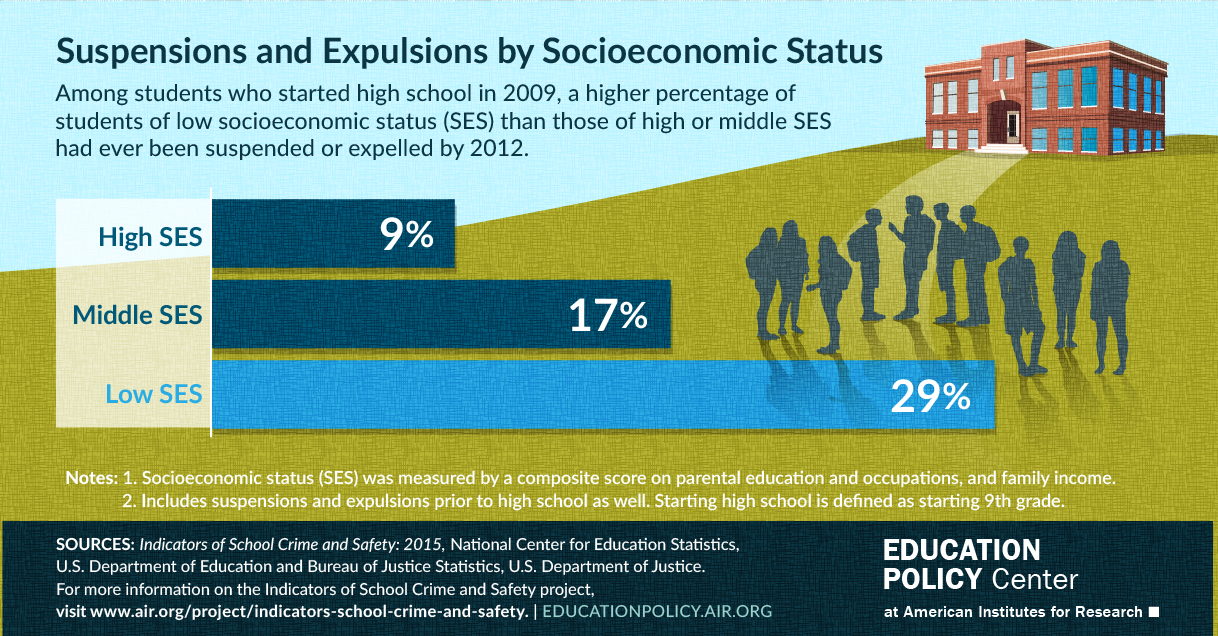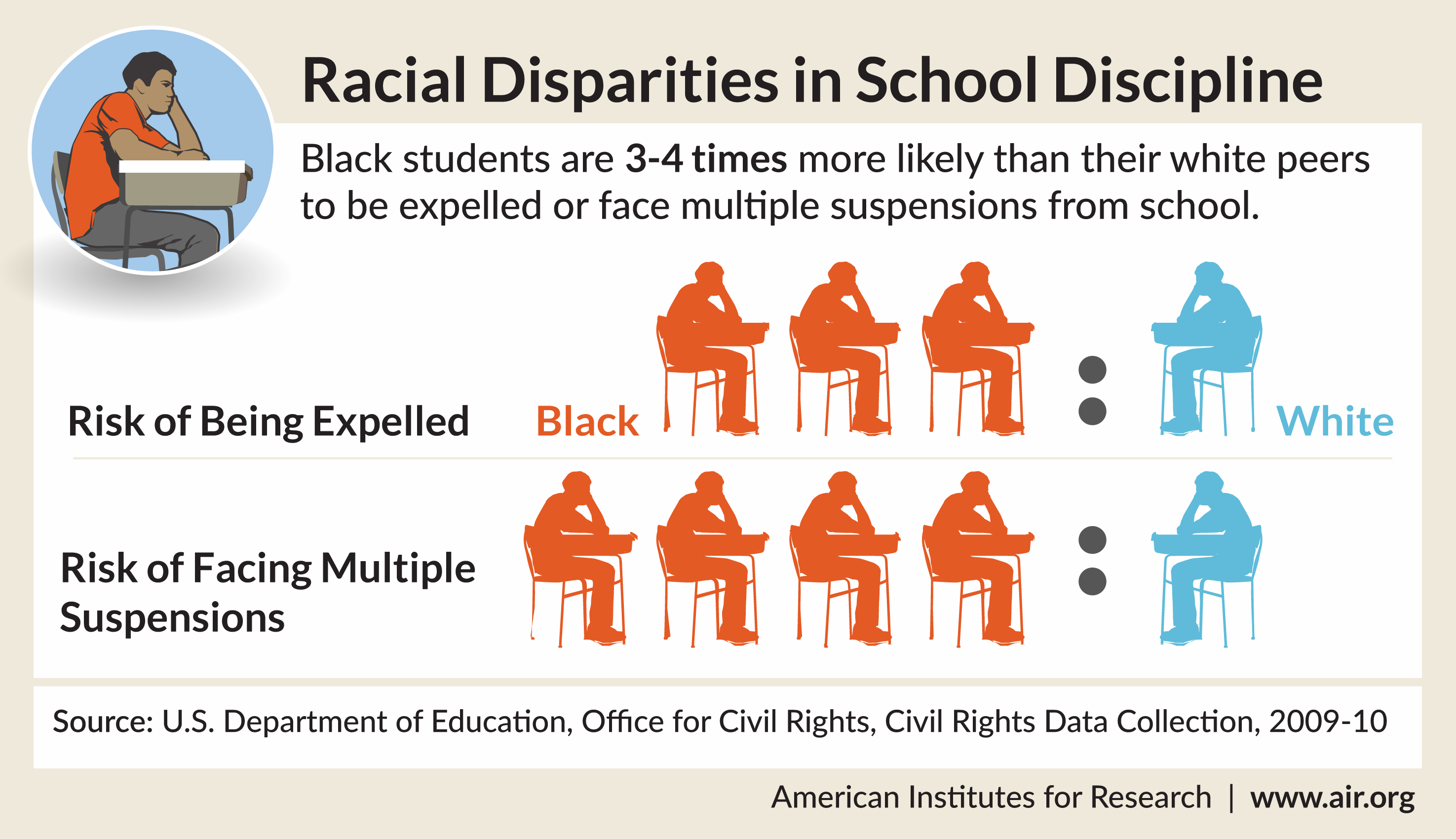Exclusionary School Discipline
Secondary schools suspend or expel two million students each year, mostly for non-violent offenses such as disruption, disrespect, tardiness and dress code violations. Research shows that getting suspended or expelled increases students’ risk for falling into unproductive behavior, affecting their social-emotional development, academic performance, and life trajectories.
Studies also find that positive approaches to school discipline at all ages can actually improve students' academic performance, and those students are less likely to become involved in the juvenile justice system or have need for behavioral services.
These AIR resources support educators in their efforts to transform disciplinary practices in our nation’s schools. We also hear from the students themselves.
Our School Discipline Work
Examining the Efficacy of Circles on School Safety and Student Outcomes in Boston Public Schools (Project)
One approach to creating real change in both school safety and the use of exclusionary discipline practices is to change the culture of the school by using circles and restorative practices to transform student-teacher relationships, peer relationships, and staff culture. With funding from the National Institute of Justice, AIR partnered with Boston Public Schools and Suffolk University Center for Restorative Justice, is examining the effectiveness of the Circle Forward whole-school restorative practices intervention.
Reducing School Suspensions and Expulsions in Michigan (PDF, Brief)
Statewide suspension rates in Michigan were high, and discipline policies in many schools were in direct conflict with its priority of reducing barriers to learning. With support from the Great Lakes Comprehensive Center, the Michigan Department of Education developed a model policy on reducing suspensions and expulsions using alternative discipline strategies; a revised model student code of conduct; and an online toolkit for schools and districts on how to implement the new policy and code.
 A Comprehensive, Evidence-based Approach to Supporting Students (Book)
A Comprehensive, Evidence-based Approach to Supporting Students (Book)
Integrating the collective wisdom of over 30 AIR experts, as well as research and field leaders, Creating Safe, Equitable, Engaging Schools helps school leaders make sense of the various evidence-based resources and frameworks designed to support the whole child. Addressing critical topics like restorative practices, cultural responsiveness, social and emotional learning, and family engagement, this volume offers insights on how leaders can leverage school-based teams to assess student needs and select appropriate interventions.
Addressing the Root Causes of Disparities in School Discipline (Educators' Guide)
In June 2015, experts from across the nation convened at the White House to discuss best practices that foster safe, supportive, and productive learning environments that keep kids in school and out of the juvenile justice system. A planning guide, developed and written by AIR experts and aimed at promoting positive school climates and ending disparities in administering student discipline, was released at the event.
Beyond Shame and Blame in the Classroom (Blog Post)
On February 12th, a New York Times story linked to a video of a teacher in a well-known New York City charter school losing her temper and humiliating a first grader. In this blog post, David Osher contends that the video and some reactions to it reveal a faulty understanding of the kind of educational experiences students—especially the most vulnerable—need to succeed in school, career, and civic life and of the role the adults play in creating those experiences.
Students Speak Out About Exclusionary School Discipline (Video, Report)
Nineteen youths accepted AIR’s invitation to talk about how harsh school discipline has impacted them and the risks and challenges of the “school-to-prison” pipeline in front of an audience of policymakers and practitioners who work on juvenile justice and related issues. Read more about the Roundtable: The Perspectives of Youth Affected by Exclusionary School Discipline and view a short video discussion with participants:
Indicators of School Crime and Safety: 2015 (Report, Infographics)
This annual report, co-produced by AIR, included a new “spotlight indicator” related to student suspension and expulsion. View the report.


Racial Disparities in School Discipline (Infographic)
The disproportionate effects of harsh, exclusionary school discipline are the impetus behind research into disparities in school discipline and the negative effects of exclusionary discipline. Using 2009-10 data, this infographic shows the differences in school discipline by race.

